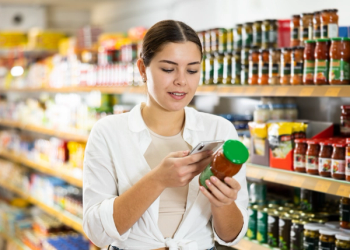
- Nutritional Outlook Vol. 18 No. 7
- Volume 18
- Issue 7
What Makes Palm Oil a Top Replacer for Partially Hydrogenated Oils?
Its combination of formulation flexibility, abundant supply, and cost efficiency put palm oil at the front of the pack. The big challenge is ensuring it’s produced sustainably.
Partially hydrogenated oils (PHOs) are beating a hasty retreat in the United States after FDA announced in June that food manufacturers have three years to remove the artificial trans fats from foods. The move may lead to healthier Americans, but what will food manufacturers turn to as a replacement for PHOs?
Canola oil, coconut oil, soybean oil, and others are all potential candidates-options that food manufacturers began phasing in long ago-but the most attractive substitute may actually be palm oil. Its combination of formulation flexibility, abundant supply, and cost efficiency put palm oil at the front of the pack. The big challenge is ensuring it’s produced sustainably.
The Best Replacement?
Palm oil supplier Cargill (Minneapolis) sees palm oil as the number one replacement for PHOs “due to the functionality and cost competitiveness of palm oil,” says Changjian Ji, tropical oils merchant; dressings, sauces, and oils, Cargill. Ji adds, “we do expect to see an increase in palm oil sales in the U.S. due to the recent trans fat ruling.”
Palm oil is perhaps the best PHO replacement because it has a neutral taste, is semi-solid or solid at room temperature, has a high melting point of 90°F, and has a smoking point of 450°F that makes it suitable for frying, says Bryan See, regional product manager at red palm oil supplier ExcelVite Inc. (Edison, NJ). Compared to the 94% saturated fats in coconut oil, red palm oil has 50% saturated fatty acids, as well as a solid nutrient profile, See says.
“Most importantly, red palm oil has a unique bouquet of phytonutrients/antioxidants, protecting the oil from premature spoiling as well as conferring it unique health benefits,” says See. Beta-carotene, lycopene, phytosterols, co-enzyme Q10, and more are some of the nutrients in ExcelVite’s palm oil, he adds.
The current global supply of palm oil is more than ready to accommodate a boost in U.S. demand, according to Kalyana Sundram, PhD, deputy CEO, Malaysian Palm Oil Council (MPOC; Kuala Lumpur, Malaysia). Sundram, however, doesn’t see palm oil as becoming the dominant PHO replacement, but rather an interim “filler fat” until other oils and alternate fat-modification processes can become more functional and less expensive.
But in the meantime, palm oil should allow many food manufacturers to switch away from PHOs in a cost-effective manner without compromising product characteristics or quality, says Sundram.
Environmental Challenges
Concerns about its environmental impact have dogged palm oil production for years, but there are ways to ensure that palm oil is produced sustainably. One is the Roundtable on Sustainable Palm Oil (RSPO), which Cargill’s Ji calls the “primary global sustainability standard for palm oil products.” RSPO offers use of its logo on products that meet its sustainability mandates.
Another way to make production more sustainable may be to increase oil yields per hectare of land cultivated. Although the oil palm tree is already one of the most prolific producers of oils and fats, the biological limitation is actually three or four times greater than the current average yield of 4 metric tons of oil per hectare, says MPOC’s Sundram. Scientists are working to increase that yield, such as by mapping the oil palm genome in 2013.
Reducing dependence on human labor is also a priority, and Sundram says the Malaysian government is offering a $1 million reward for innovative ideas to enhance mechanization of the industry.
There’s definitely a lot of momentum behind palm oil, and it’s a market that may be poised for even greater growth as U.S. food manufacturers make the non-PHO switch. ExcelVite’s See thinks it’s likely that European countries will soon follow FDA’s lead and pass PHO bans of their own-opening up even more opportunities for palm oil in coming years.
Also read:
Articles in this issue
about 10 years ago
Infant Formula Market Opportunitiesabout 10 years ago
Bone-Health Cofactors: New Science on Vitamin D, K2, Magnesium, and Zincabout 10 years ago
Weight Management and Nutrition Strategies for Childrenabout 10 years ago
Topical and Ingestible Cosmetics Get Togetherabout 10 years ago
Energy Drinks Are Still Going Strongabout 10 years ago
New Breakthroughs in Omega-3 Researchover 10 years ago
What Does Non-GMO Certification Cost? 5 Things to Knowover 10 years ago
Preparing for FDA's Review of Animal Food Ingredientsover 10 years ago
Non-GMO Riding on Organic’s Coattails?Newsletter
From ingredient science to consumer trends, get the intel you need to stay competitive in the nutrition space—subscribe now to Nutritional Outlook.





